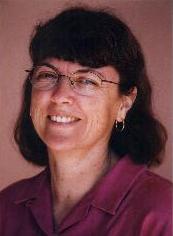I don't think that was an accident. I remembered some of the things I'd read about it, and more than that I recalled the experience of another novelist, a woman who had been writing something like two books a year for ten years. One day she just could not go on. Could not write a word. No matter how she tried. So she took a year off.
It occurred to me that that was very much like what I'd experienced after I turned in the first draft of The Enclave last June. In fact, it wasn't just that I couldn't write anything, I couldn't much do anything else, either. There was all that sitting around, staring out of windows, and then it took me a long time before I could even bear to think about working on this book again. Even though I got the editor feedback in the early part of July, it wasn't for another two weeks or so that I could make myself get back to it.
Of course there were lots of other things going on around that time, but it seemed odd that I was literally unable to make myself get to it.
So recalling all of that, last week I decided to research burnout. What I learned was interesting. The Internet article, "Preventing Burnout," describes it as
"a state of emotional and physical exhaustion caused by excessive and prolonged stress. It can occur when you feel overwhelmed and unable to meet constant demands. As the stress continues, you begin to lose the interest or motivation that led you to take on a certain role in the first place. Burnout reduces your productivity and saps your energy, leaving you feeling increasingly hopeless, powerless, cynical and resentful."
"Burnout and stress are not the same. Stress, by and large, involves too much: too many pressures that demand too much of you physically and pyschologically. Stressrd people can still imagine though, that if they can just get everything under control they'll feel better.
"Burnout, on the other hand, is about not enough. Being burned out means feeling empty, devoid of motivation, and beyond caring. People experiencing burnout often don't see any hope of positive change in their situations. If excessive stress is like drowning in responsiblitites, burnout is being all dried up."
For a good part of the summer, that's how I felt: dried up, especially when it came to words.
The articles said that burnout is a gradual process, and that recovering from it takes almost as long as its development. Symptoms include cognitive and motor difficulties including lack of concentration and restlessness, and turning to escapist behaviors such as... shopping binges (hmm... like buying rubber stamps?? thinking about buying stamps? making cards?) to escape your feelings of reduced personal accomplishment. (resulting perhaps from your actual reduced accomplishment since you're spending all your time thinking about buying stamps. ) Because another of the symptoms is a definitely a reduction of productivity.
For awhile I thought maybe I was close to being burned out. But I don't feel hopeless, and I don't feel cynical, and my motivation is returning. I think creatively I was just exhausted and am probably still depleated.
Last Thursday, Friday and Saturday I got in some good work on Enclave. ...but it was slow, exacting, mentally taxing work. I revised chapter 4, paying special attention to motivations of the principle characters (not just the pov), and to the concepts of scene and sequel. What was the story goal? What was the scene goal? Does the conflict in the scene actually reflect these goals? What is his thought process in this sequel?
I ran into lots of inconsistencies and areas I'd not considered before. Things like having my hero assume things that, now that I thought it through he would never assume given everything he'd seen to that point. Which meant I had to change the thinking and the decisions and the conversation and the scene goal... But the changes resulted in definite improvements.
The next day I did the same for chapter 5, except that some of the changes that came out of that work sent me back to 4 for another pass. Then back to 5 for its second pass, more cutting (there's been lots of that) more focus, more thinking. Sometimes I'd get to the point where I just could not think anymore. I couldn't hold two thoughts together in my mind. Couldn't generate any thoughts at all relative to the issue, subject or problem. If I tried, everything snarled and ended in blankness. So I had to get up and do something else.
And I'm not getting on my case for not going back to it real fast, either, if I don't feel like it. (Or just get distracted -- I figure I need the distraction) I'm also trying to just focus on today's work and not hurry myself through it. In the past I've not wanted to do the kind of slow, close work I've been doing because "there wasn't time." Well, there still might not be time, but it's what the work needs. And I think it's what I need, too.
However, given the scope of what needs to be done and thought through and worked out on this manuscript, I seriously doubt I'll be able to do it all in the month I have remaining. Of course, God could always work a miracle... But I probably better let my editor know.
~~~

